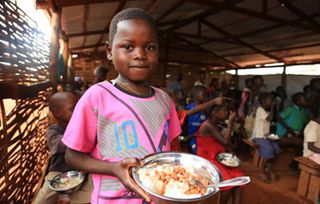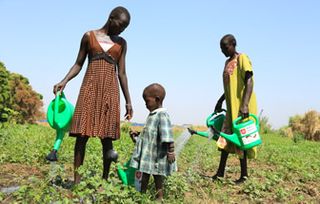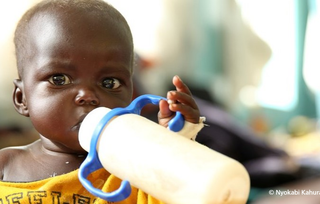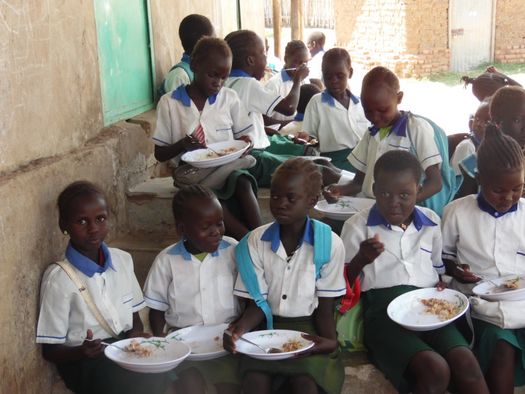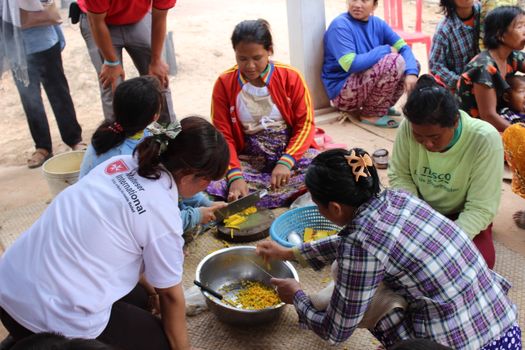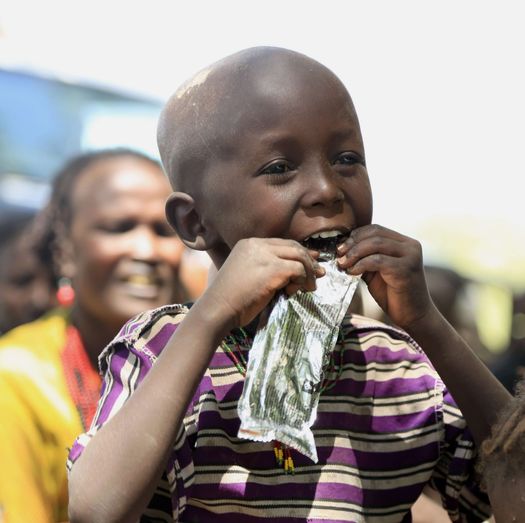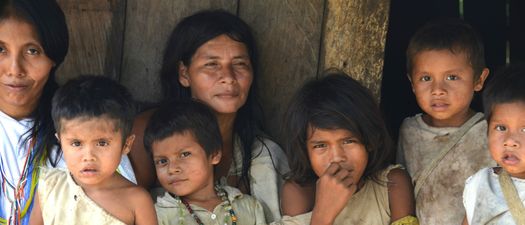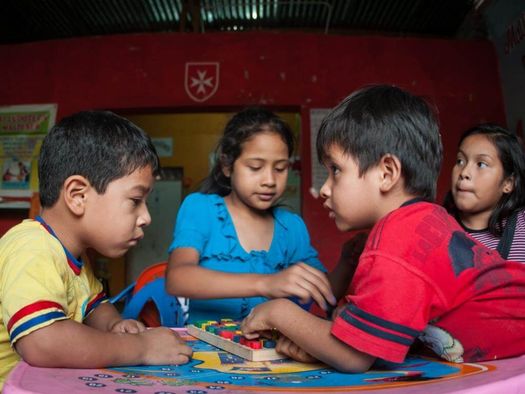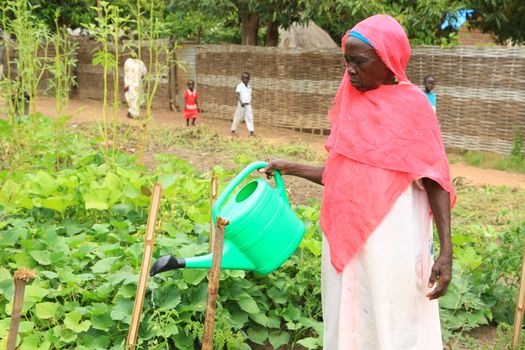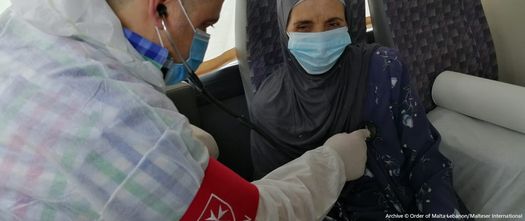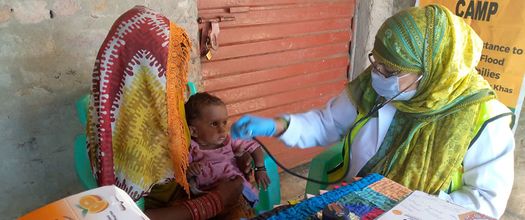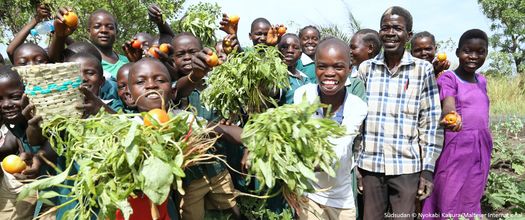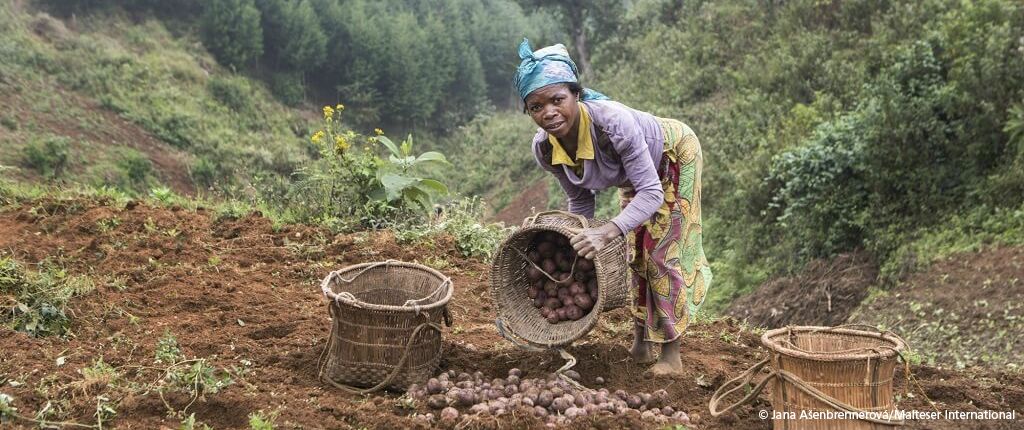
Our commitment to food and nutrition security
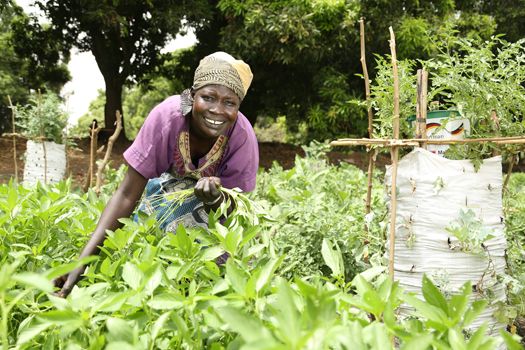
Access to sufficient and healthy food for all is a fundamental human right that must be safeguarded. After all, food security contributes significantly to people's well-being and is the basis for a healthy and active life. In light of the uneven distribution of food, changing climate conditions, conflicts and the growing world population, we are facing major challenges in the area of the global food system.
Food and nutrition insecurity has serious consequences, such as malnutrition and associated health problems as well as lasting negative impacts on societies. It is therefore particularly important that we develop sustainable solutions to create a future where no one goes hungry. Although progress has been made in the past in the fight against hunger and food insecurity, there is still a long way to go. Ending all forms of malnutrition therefore remains high on the United Nations agenda. We too are working toward this goal, because this major task can only be accomplished if all stakeholders join forces.
Your donation for safe and sustainable food
What is food and nutrition security?
Food and nutrition security, as defined by the United Nations' Committee on World Food Security (CFS), is a state in which all people at all times have physical, social, and economic access to sufficient, safe, and nutritious food that meets their food preferences and dietary needs. This is complemented by an environment with adequate sanitation, health services, and access to care that enable an all-around active and healthy life. The concept of food security thus goes beyond the mere aspect of food availability and describes a holistic approach.
The term food and nutrition security complements the terms food security and food safety, which are defined as follows:
| Term | Definition |
| Food and Nutrition Security | Physical, social, and economic access at all times to sufficient, safe, and nutritious food that meets one's nutritional needs and an environment with adequate sanitation and access to health and care services. |
| Food Security | Physical, social, and economic access at all times to sufficient, safe, and nutritious food that meets one's nutritional needs. |
| Food Safety | Unsafe foods may contain bacteria, parasites or chemical substances that are harmful. They cause diseases such as diarrhea or cancer. Food safety must therefore be ensured during the production and processing of food in order to prevent food contamination. |
Global food and nutrition security as a common goal
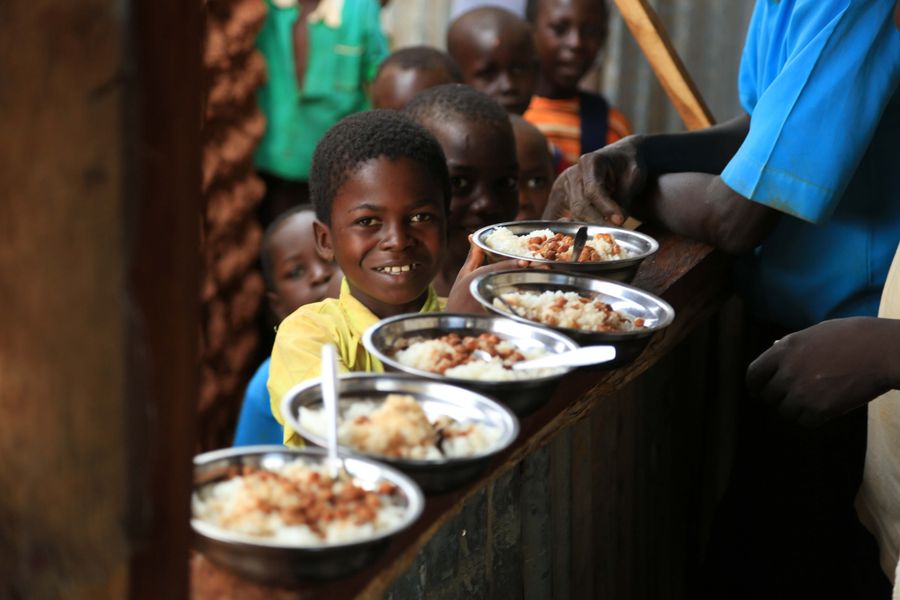
Everyone has a right to adequate food. This right is enshrined in Article 11 of the International Covenant on Economic, Social and Cultural Rights ("UN Covenant"). The signatory states recognize that it is "the fundamental right of everyone to be free from hunger."
Four pillars of food security can be defined:
- Availability: Sufficient quantities of healthy and high-quality food are available.
- Access: People have access to food at all times by producing food themselves, purchasing it, or obtaining it through government social programs, for example.
- Utilization: People have the knowledge and resources (e.g., clean drinking water and energy) to select and prepare healthy foods according to their needs.
- Stability: Food is consistently available, accessible, and usable over an extended period of time.
These factors determine whether or not food and nutrition security exists. They are closely interlinked: The lower the availability of food, the more vulnerable access to food becomes, especially for people affected by poverty. This is because when there is a shortage of food, market prices automatically rise, with the result that poorer sections of the population can no longer obtain sufficient food for themselves, even when there is enough food available in theory.
In the Sustainable Development Goals (SDGs) agreed by UN member states in 2015 and to be met by 2030 - one of 17 targets is dedicated solely to ending hunger and global food insecurity. SDG 2, "Zero Hunger," includes specific and thematically diverse sub-targets, the fulfillment of which will end hunger by 2030. For example, agricultural productivity and incomes are to be doubled, especially for smallholder farmers, by giving them equal access to land, resources, knowledge, etc. Similarly, investments in sustainable agriculture and rural infrastructures are to be increased and it is to be ensured, for example, that the global agricultural market is no longer determined by agricultural subsidies for countries of the Global North, which make it difficult for countries of the Global South to remain competitive and ensure unequal conditions on the world market.
Food and nutrition insecurity in numbers
2.33 billion people, about 28.9 percent of the world's population, lacked secure access to adequate food and were moderately or severely food insecure in 2023 - nearly one in three people - according to the 2023 UN report State of Food Security and Nutrition in the World. While the prevalence remained virtually unchanged from 2020 to 2023, the number of people facing moderate or severe food insecurity in the world nevertheless increased by more than 65 million, as the global population grew during that period. Comparing situations in the different regions of the world in 2023, Africa remains the region with the largest proportion of the population facing food insecurity. The prevalence of moderate or severe food insecurity in Africa (58.0 percent) is nearly double the global average.
As a result, affected populations are often malnourished. Experts distinguish between different types of malnutrition, such as acute (wasting) and chronic malnutrition (stunting) resulting from insufficient calorie intake.
However, even when people consume too many calories compared to their personal needs, we are also speaking of malnutrition. This results in overnutrition instead of undernutrition, which in turn leads to diseases such as obesity (overweight). Ironically, these two opposites often occur in conjunction. Family members within individual households or the population of certain regions or countries are then equally affected. Experts refer to this coexistence as a "double burden of malnutrition".
Hunger and malnutrition particularly affect children: underweight in early childhood can lead to reduced physical and mental performance and weakened immune systems, among other consequences. According to the Global Report on Food Crises 2024 (GRFC), more than 36 million children under the age of 5 were acutely malnourished in 32 countries at high risk of hunger and which provided relevant data in 2023. Smallholder farmers, as well as indigenous peoples or fishermen, are particularly affected by food and nutrition insecurity. Women are also disproportionately affected.
Main causes of food and nutrition insecurity
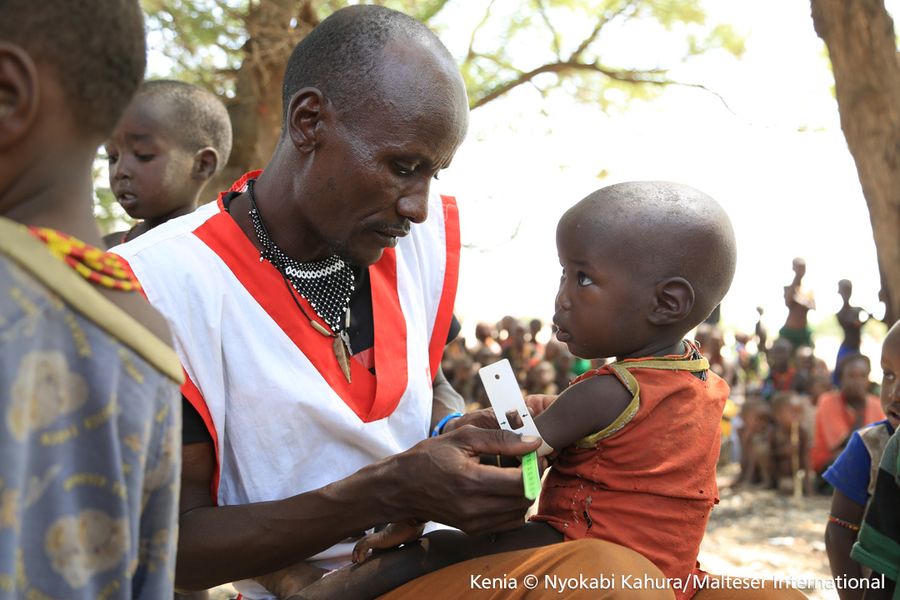
The causes of food and nutrition insecurity are mainly structural, because globally, there is enough food for the world's population - theoretically, no one should have to suffer from hunger. In reality, however, there is a pronounced problem of food distribution, so that there is an oversupply of food in some regions and an undersupply in others. In particular, political decisions affect agricultural development in countries of the Global South and influence global trade to the advantage of countries of the Global North. Even when subsidies are granted in countries of the Global South, it is mostly urban consumers who benefit, while smallholder farmers are rarely protected from price fluctuations by government intervention.
However, other factors such as pandemics and related restrictions also affect food availability. This was particularly evident during the height of the Covid-19 pandemic, when measures to contain the coronavirus resulted in food and nutrition insecurity rising as much in 2020 alone as it had in the previous five years combined. Moreover, other factors such as wars, climate change and associated natural disasters, and economic crises play a critical role in the stability of food systems or the maintenance of food security. The main drivers of acute food insecurity in countries facing hunger crises in 2022 are considered to be economic shocks, weather extremes, and conflict, all of which make food in sufficient quantity and quality inaccessible to the population.
Food and nutrition security through sustainable management: our integrated approach to healthy living
A multisectoral approach must be taken to addressing food insecurity, as other factors besides the four pillars of food security also influence food systems. For example, access to clean drinking water, sanitation and hygiene standards play an important role in food and nutrition security. Therefore, we closely link our sustainable food security projects to health, water, sanitation and hygiene components where possible. Similarly, we place a focus on supporting pregnant women and young children, as the first 1,000 days of life in particular are crucial for children's physical and cognitive development. Damage caused by malnutrition is irreversible.

Long-term consequences of structural problems in the area of food and nutrition security are known as the so-called vicious circle of malnutrition. This describes the course of a generation that has already been inadequately nourished in the womb. They have an increased risk of impoverishment, which means that the following generation is also at high risk of being affected by malnutrition. To break this causality, we address all forms of malnutrition and holistically tackle the various social and environmental determinants of food and nutrition security. This includes - but is not limited to - gender equity, climate change, and the associated impacts on agricultural production.
Besides access to food, healthy nutrition also requires knowledge of nutritional value, preparation and food hygiene. In our projects, we therefore make sure to focus specifically on the "use" pillar by introducing people to this knowledge, e.g. through cooking demonstrations and workshops, and by supporting young mothers and fathers in how to breastfeed their infant properly and how to introduce complementary foods after the 6th month.
In emergency situations following disasters or conflicts, we also provide food aid in the form of food supplies, vouchers or cash, and provide targeted support for the reconstruction of agricultural production and livestock.
Some of our projects in the area of food and nutrition security
More about hunger and malnutrition
Hunger and malnutrition
Global hunger is one of the greatest challenges facing the world community. Although the number of hungry people fell by 216 million from 1990 to 2015, it rose steadily again in the years that followed.
Learn more about hunger and malnutrition. What are the different types of hunger and malnutrition? What are the five stages of a hunger crisis? What are the causes of hunger and what are its effects?
Read more about hunger and malnutrition
